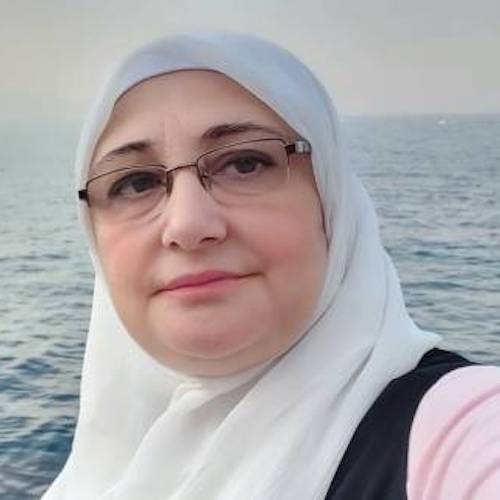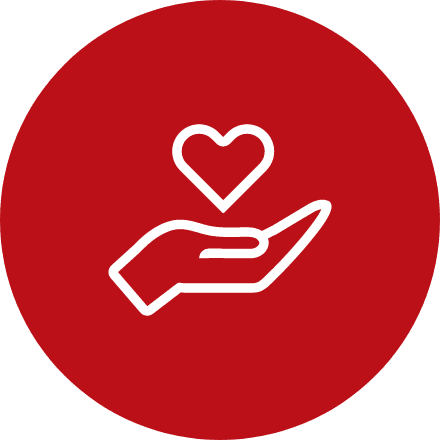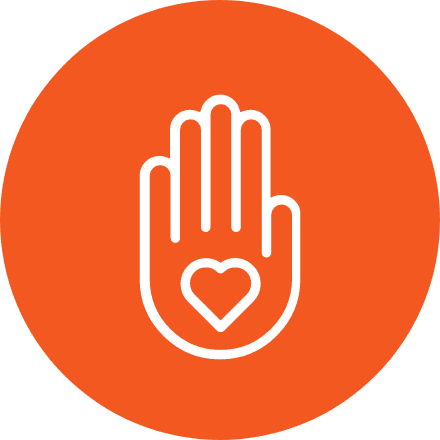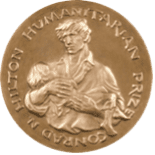Nidaa needs to know how to protect herself from COVID-19.

"If I acquire the virus, am I going to be hospitalized since my age group is considered to be at high risk? And most importantly, will I be able to recover?"
Nidaa Barakat, Lebanon
Meet Nidaa
When I first heard about COVID-19, like most of the people around me, I was terrified. I didn’t know much about the disease: what are the health implications?
If I acquire the virus, am I going to be hospitalized since my age group is considered to be at high risk? And most importantly, will I be able to recover?
Due to these worries, my family and I have decided to treat each other as if we had the virus. As I need to protect myself and everyone around me, I have started cleaning and disinfecting the house according to the guidelines provided to us. And whenever I want to meet any of my family members, I make sure to take all the precautions, not getting near them, and not kissing or hugging them.
My first concern was, and always will be, my kids and their families. That’s why I decided to isolate myself. I am always concerned about their behavior. Are they taking all the precautions? Are they going to get infected? What can I do to help and ensure their safety? Because I live in Beirut, I believe access to healthcare services is relatively easy. I think at this point we are aware of the common symptoms of this disease, so if we feel any of those, we can directly seek help or professional advice.
Despite all the comforting thoughts I always try to have, I cannot ignore the fact that I recently had open-heart surgery and I do have chronic diseases, so I am highly concerned about my health. What if I acquire the virus and there is no capacity to treat me at the hospital? What if I don’t survive COVID-19? Adding to that, in high-income countries, they are prioritizing the hospitalization of younger generations. What will happen here when the situation worsens? The state of uncertainty, the negative thoughts, and facing an invisible enemy keep me in a relatively unstable mindset. I am, to a certain point, able to ease myself because I am abiding by all the precautions and the measurements. I’m taking care of my nutrition and I’m taking all my medications as prescribed.At first, when I heard how the media is portraying our vulnerability as older people, and how the virus can attack us, I got frightened and terrified. I felt like I fit in within the group of people that can easily acquire the virus. But as the days have passed and we have got familiarised with the disease and how to protect ourselves, I feel like now the media needs to listen to us and learn more about the ways to protect ourselves. Seeing how the infection curve is increasing has saddened me but it has also driven me to stay home. Also, I feel like the media has a hidden intention to cause fear. It’s like they are slapping us with the reality to increase our commitment and our sense of responsibility.
Knowing about the presence of fake news and wrong information helps me not to believe or trust anything I read or hear. Although we are at a higher risk and we are the most vulnerable, I believe most of us (older people) are the wiser, most experienced people, and have a sense of responsibility towards ourselves, our families, and our society. As an old Lebanese saying puts it, “we are the blessing of society”.
I don’t really know about the actions that the government is taking for older adults. However, if there was something significant, I would have heard about it. This all goes back to the financial incapability of Lebanon. I believe the real effort and consideration for older adults are coming from NGOs, the private sector, and even from personal initiatives. And of course, we can’t forget the work that the Rafik Hariri Hospital is doing, as it was one of the first hospitals to admit and take care of COVID-19 cases. We just hope the number of cases does not increase anymore so there is space for older people to be hospitalized if needed.
Although I don’t live with my kids in the same house, and our family’s economic situation is bad, we have been able to support each other morally and socially, rather than financially. We always call each other, ask about each other, and are there for each other. When I see how they care about me and how they are making sure I’m staying safe at home, it motivates me and makes me more resilient for longer. After all, for me, this kind of support is what keeps your soul alive, and makes you feel special, appreciated, and hopeful.
Once this all is over, I will make sure to congratulate myself for the positive attitude I was able to maintain through all these days. I will look back at it as a lesson that no matter how old I get I always have new things to learn and new habits to develop, and that I never should take anything for granted. This experience has made me appreciate the small things, what really matters and who really cares about me. It has also reminded me of my hobbies: I sew, I read and I take care of my house in different ways. It has also strengthened relationships between family members and revived old relationships.
COVID-19 doesn’t frighten me in general. I am fully aware of its seriousness, but I also know how to protect myself and avoid acquiring the virus. With thanks to Imam Sadr Foundation, Amel Association, and Makassed Communal Healthcare bureau





